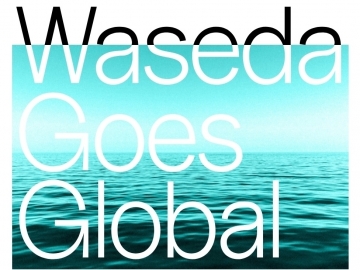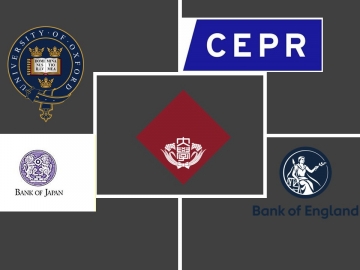The Center for Positive/Empirical Analysis of Political Economy invited Professor Yukio Koriyama from École polytechnique to teach a regular course for the summer term 2021 in accordance with the university’s policy of seeking possibility of face-to-face classes. Students had the opportunity to learn directly from an outstanding overseas professor.
Professor Koriyama summarizes his class and gives a special message to Waseda students.
Please tell us about your class, for example, the purpose of your lecture (what you expect from students), the achievement level of your students, overall evaluation, materials, etc.
We study how game-theoretic concepts are applied to the analysis of strategic interaction between multiple decision makers. We focus on application to the “design” aspect in the analysis of economic phenomena, using the approaches from the classical mechanism design to the political institutional design. The principle idea is to see how we can set up the rules in society so that desirable properties, such as efficiency, stability, fairness, equality, and strategy proofness, are satisfied. Designing a rule requires understanding its impact on the decision makers’ incentives which affects their behaviors and thus the social outcomes. The students will see how game-theoretic concepts are applied to real-life examples in political economy and social choice theory, such as voting in committee, competition among political parties, voting in international institutions, the US Presidential Election, and many more.
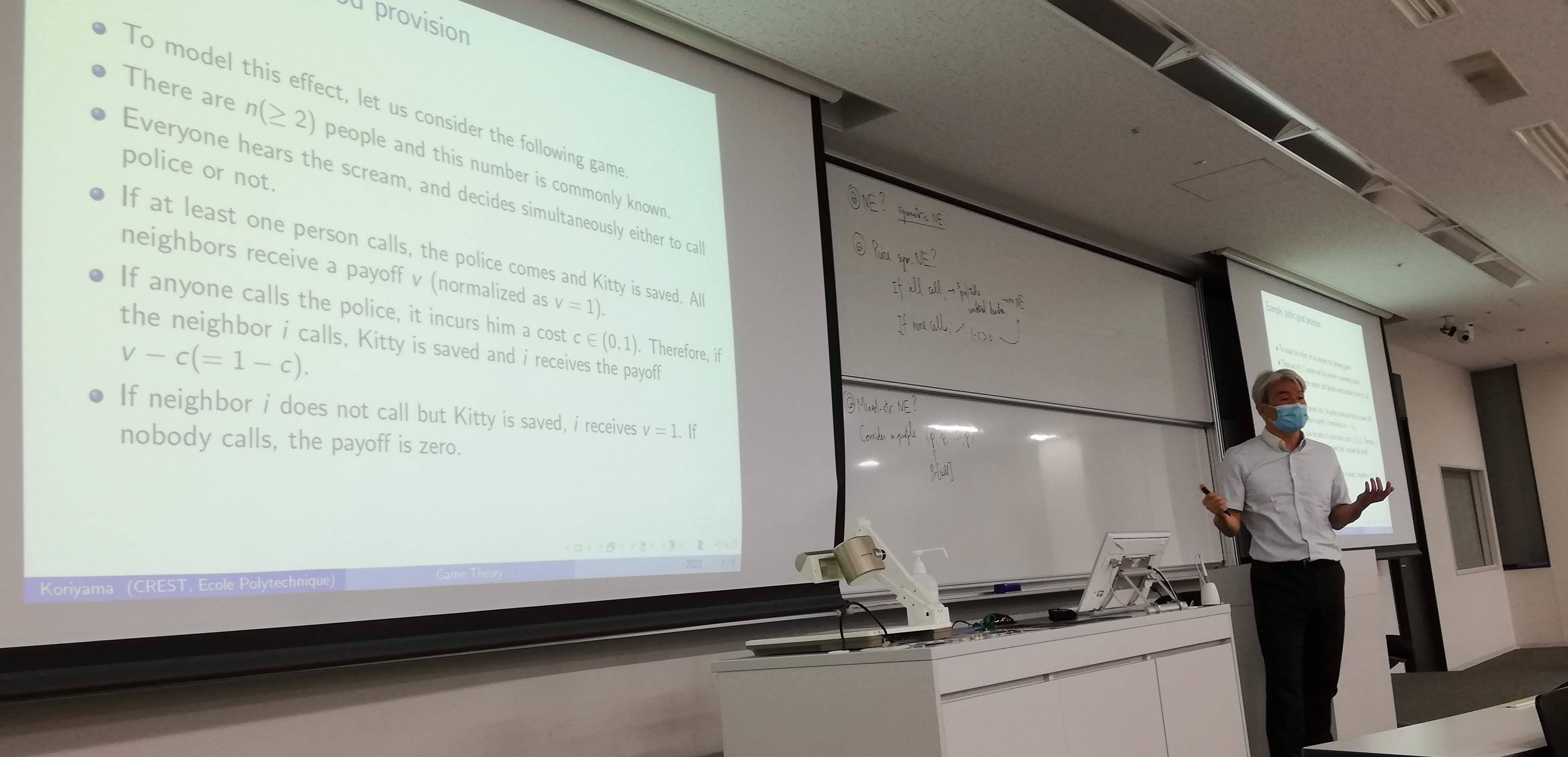
Presentations and discussions on concrete examples are emphasized during the course. In particular, each student will give a pitch, a short presentation that conveys only the essential ideas, at the end of the lecture. Students are expected to present proposals based on original ideas of game-theoretic analysis, using the analytical tools they have learned during the course. In the first half, we will also have a discussion session based on “The Strategy of Conflict”, a famous book by Nobel laureate Thomas Schelling that has greatly enhanced our understanding of conflict and cooperation among decision makers through game theory. Through these discussions and presentations, students will have a valuable opportunity to think and devise their own applications of game theoretic concepts to concrete examples.
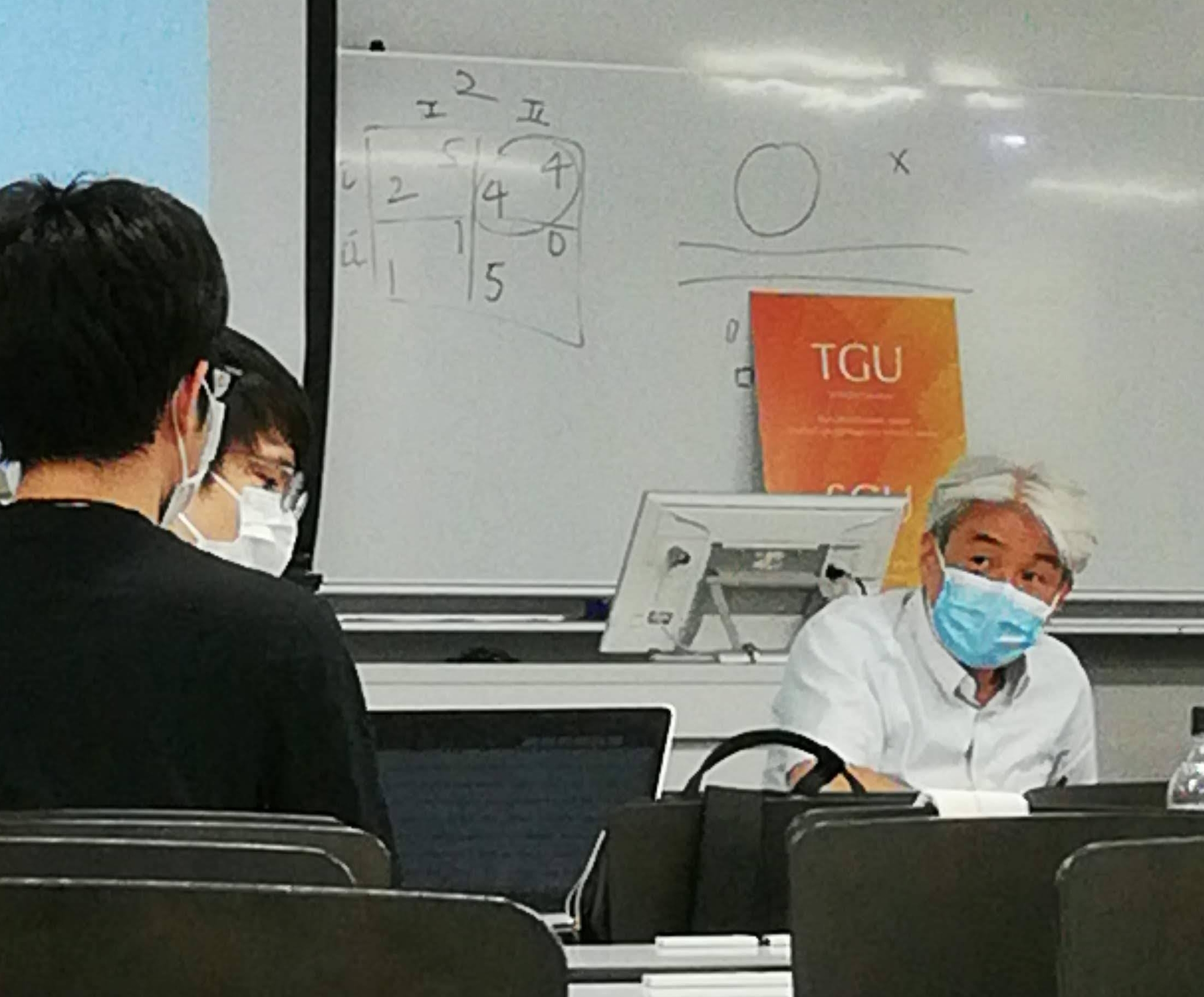
Listening to student’s questions
In addition to the presentations and pitch, class participation is weighted heavily in the evaluation. All students are expected to actively participate in class discussions. At the end of the course, students are expected to be able to confidently apply the concepts they have learned throughout the course to practical and concrete examples.
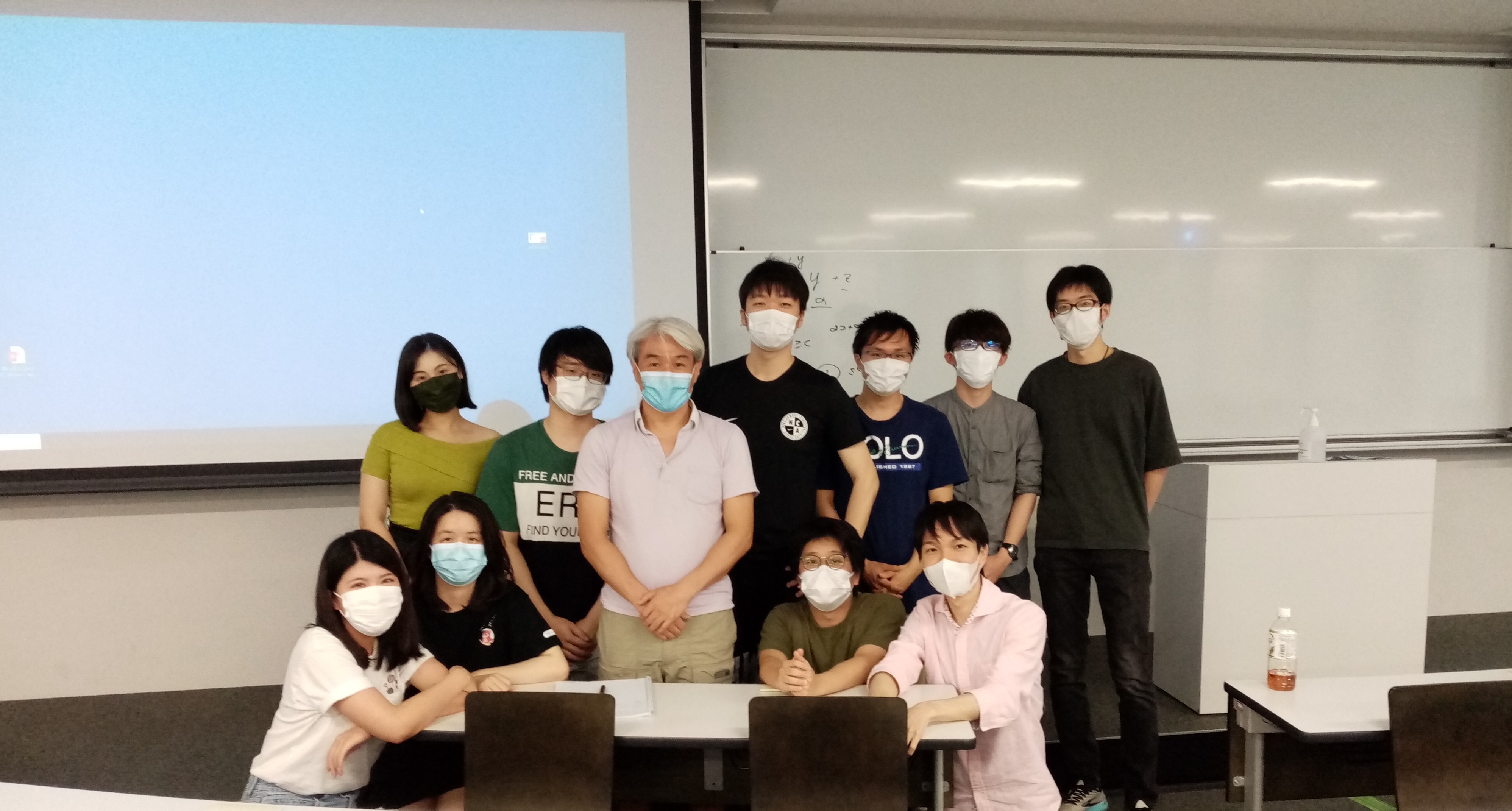
A group photo after the last session Students’voices
While the class was held in an online format last time, it was held face-to-face this year. What is your honest impression after conducting classes under different types of class formats?
During the Covid pandemics, we noticed that it is important to have face-to-face classes in order to maintain high quality in lectures. The importance of in-class teaching is particularly pronounced in this course, which focuses on discussion. By sharing the same space, looking each other in the eye, and discussing using various means of communication including gestures, students have opportunities for learning, discovering, and feeling the joy of understanding that are harder to be obtained online. By comparing last year’s online and this year’s in-person classes, I realized the importance of face-to-face communication.
You teach at the École polytechnique in France. What do you feel are the differences between students in French universities and Waseda students?
I have received higher education in Japan, France, and the US, and have also taught in each of these countries. When I compare class atmosphere, I feel that there is a lack of questions from students in Japanese universities. I often hear students say, “I want to ask a question, but I don’t know what and how to ask.” There is a saying, “Asking is a temporary shame, not asking is a lifelong shame.” However, in my opinion, asking is not even a temporary shame. Because in many cases, if one student has a question, other students also has the same or a similar one. When other students ask questions and hear the responses,
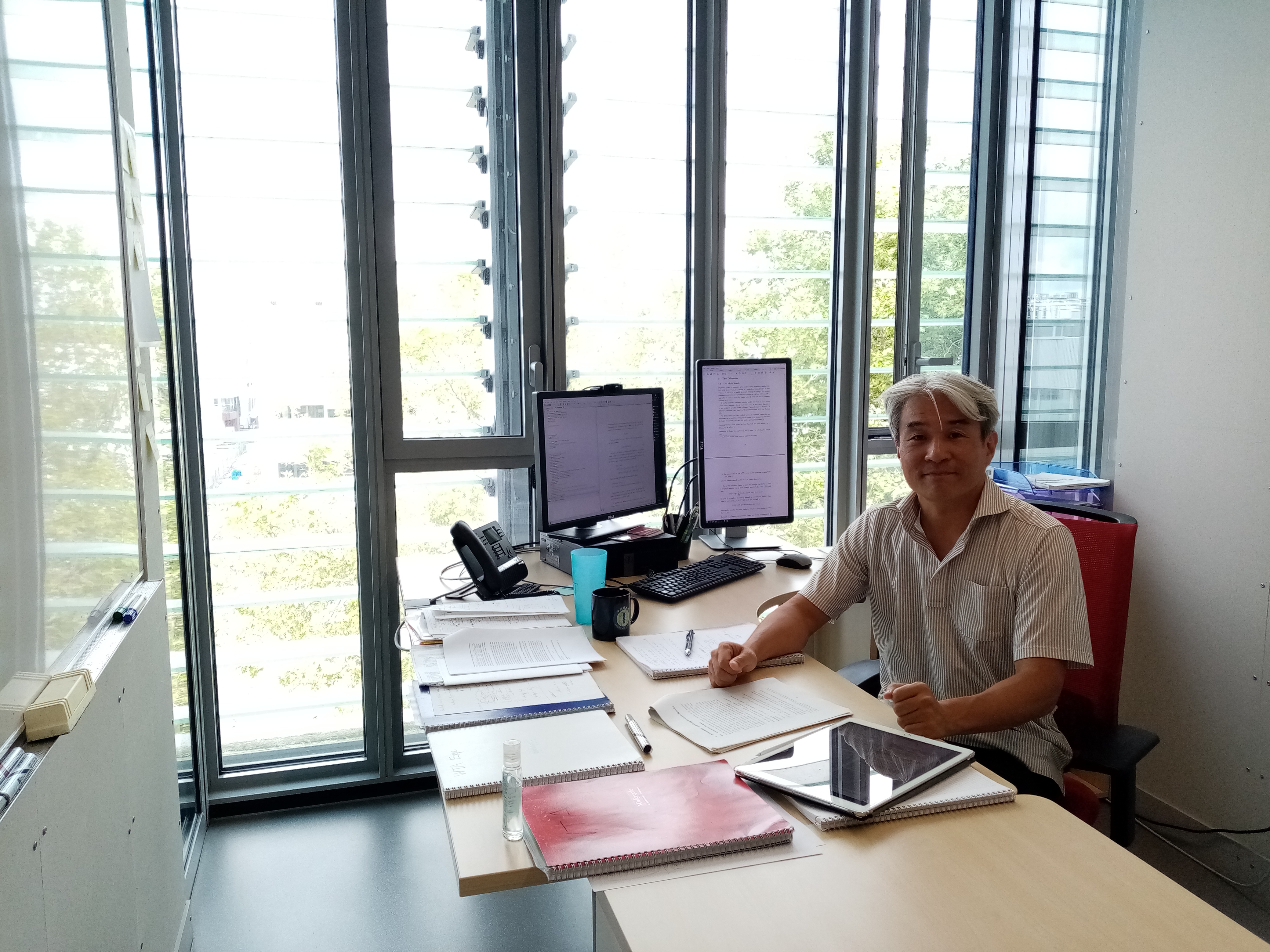
Professor Koriyama at his office
it is therefore often the case that other students also benefit. Moreover, it is useful for the teachers as well: when we receive questions, we can adjust our lectures, thinking, “Oh, I should spend more time discussing this part,” or “this question coming up means that I should explain the previous content in more detail.” Questions have a positive effect not only on you but also on the people around you. Using a more microeconomic expression, questions have positive externalities. Therefore, the amount of questions tends to be less than the socially optimal level in equilibrium, and thus there is no need to feel intimidated by asking questions. The more questions you ask, the more likely that social welfare increases. In my classes, I prompt students to ask as many questions as possible. I wish students practice more asking questions and learn how to deepen your understanding through discussion.
Last of all, we would appreciate it if you could give a message toward not only your students but also Waseda students.
The Covid pandemic has greatly restricted our mobility and made communication difficult. Although various tools are available to communicate across space, we still have fewer opportunities to see each other and discuss in order to make joint decisions altogether.
As people with diverse preferences and information live in the same society, it is our destiny to live together and share social decisions. So many things in the world need to be decided jointly, and our lives are affected by the nature of those decisions. From the distribution of goods to the design of political institutions, many things are determined by social mechanisms. From the allocation of private goods to the market system, from public goods to taxation and subsidies, from redistribution to safety nets, and of course, the restrictions due to the Covid pandemics, our daily lives are greatly affected by various kinds of social mechanisms.
The field of economics that studies the properties of distribution obtained by different kind of social rules is called mechanism design. In this field, we use diverse areas of research, including game theory, behavioral economics, and experimental economics, in order to study the nature of social institutions that have desirable properties. Academic knowledge is applied in concrete ways in various institutional design problems.
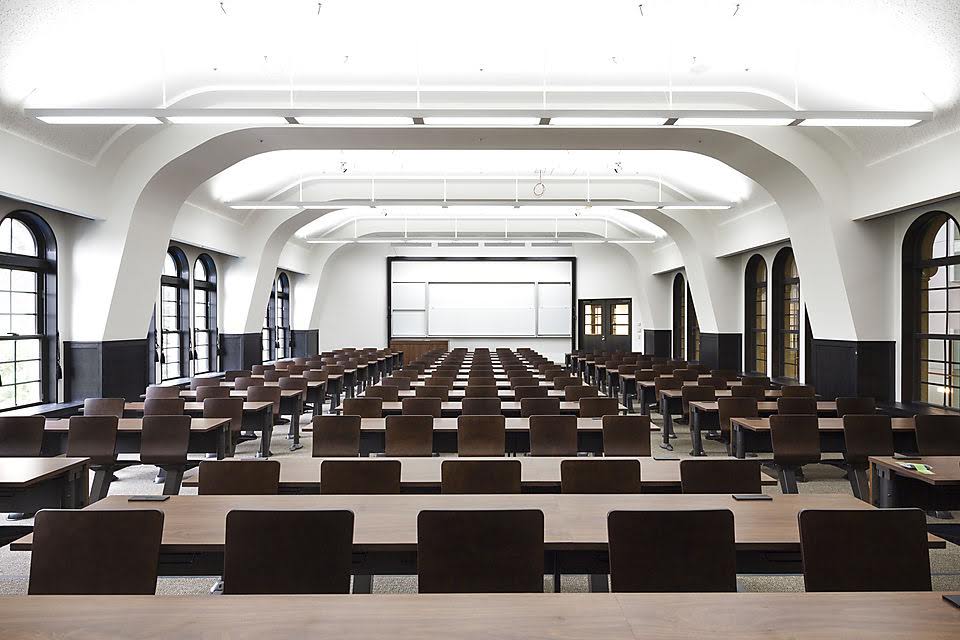
Waseda University Bldg. 3 – With vision of creating better society –
At Waseda University, cutting-edge research is being conducted not only in these fields, but also in a wide range of other areas to explore “desirable” social mechanisms. I hope that those of you who have had the precious opportunity to learn about these areas will make use of it and contribute to the realization of preferable social outcomes.


